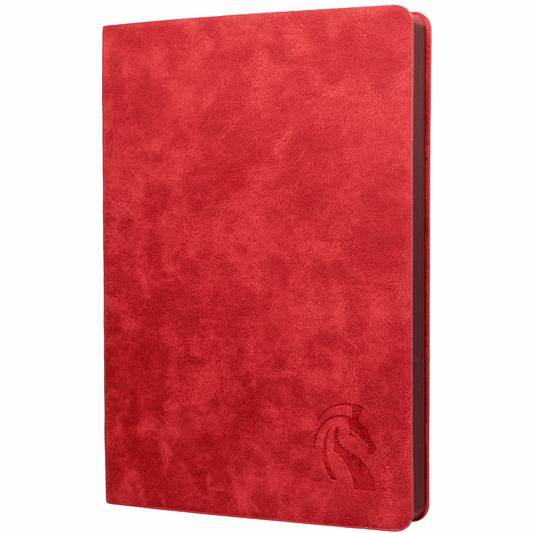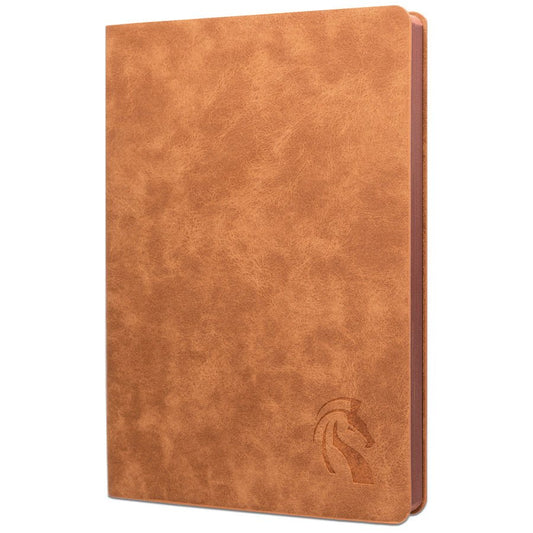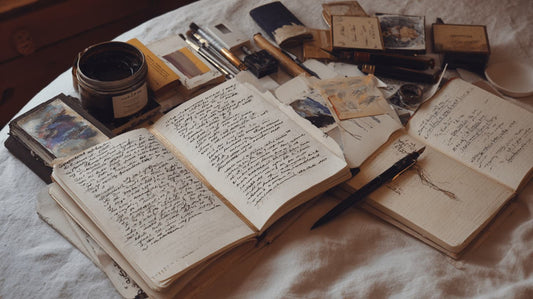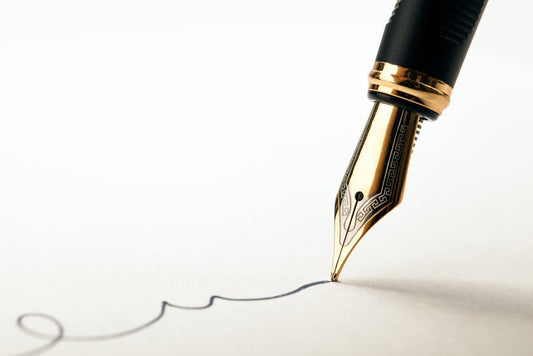
According to Ralph Waldo Emerson, a man is what he thinks about constantly. Evening was probably when Emerson wrote in his journal the most. Moreover, a surprising quantity of studies support the assumption that nighttime journaling is preferable to morning journaling.
When writing in a journal, is morning or night preferable? Writing down your ideas before bed can help you get a better night's rest and clear your mind for the next day. Journaling at night is recommended because it allows you to process your feelings and ideas before bed.
Even though there is substantial evidence to suggest that journaling at night is preferable, many people still choose to write in their diaries first thing in the morning. Even more research reveals there are valid points on both sides.
TIMING YOUR JOURNAL ENTRIES
Writing in a journal before bed can help you get a restful sleep. So that tomorrow will be a good one for getting things done.
This is especially true if you find yourself frequently waking up in the middle of the night still processing the events of the previous day.
Dr. Michael Scullin, a sleep expert, recently suggested in an interview that writing down your thoughts before bed can help you wind down from the day.
Because unfinished or incomplete tasks can keep you up at night, he suggests writing out a list of things to do the next day. To-do lists may be made with ease using the bullet journaling method. You can find more information in the areas below.
Should I let my BF read my journal?
Choose a notebook that makes you smile when you see it. There are diaries with writing prompts supplied to aid you if you get stuck.
Even if you only write for five minutes before bed, you'll find that it helps you wind down and get to sleep. Your best bet is to find a comfy chair in a quiet area. Grab yourself a drink of wine or maybe some chamomile tea.
Take advantage of the peace and quiet to reflect on your day or clear your mind. Feel free to share your frustrations about the annoying behavior of a coworker here. Or ponder that possible promotion.
Make a plan for what needs to be done tomorrow. You can avoid waking up in the middle of the night to attempt to recall what you need to do since you forgot about it because you wrote it down. You can think of it as pausing the action temporarily.
Forty-one college students who regularly struggled to nod off were assigned a task to do each night for a week. Try writing in a journal for 15 minutes before bedtime about something encouraging or thankful. Researchers observed that the test subjects not only experienced a reduction in sleep disturbances at night but also slept for significantly longer and deeper periods of time.
In the evening, you can keep a journal whenever you like. In some cases, you may be too exhausted to consider doing anything extra before turning in for the night.

JOURNAL FOR THE DAY'S END
Rather, try writing in a journal after you get home from work. Take this time to wind down from the day and think about what you accomplished at work.
Use the next fifteen minutes to document your current work.
Deal with the aftermath of an unpleasant exchange with a coworker or a client. As a result, you'll have somewhere to calmly consider and contemplate how to build more adaptive behaviors in the future.
To achieve success in both the short and long term, it's important to think about your objectives.
Worrying about something? Write it down. This could help you identify problematic aspects of your employment or profession and work toward improvement.
JOURNALING AFTER DINNER
Journaling after dinner can be a relaxing way to wind down, much like enjoying a glass of wine or a sweet treat.
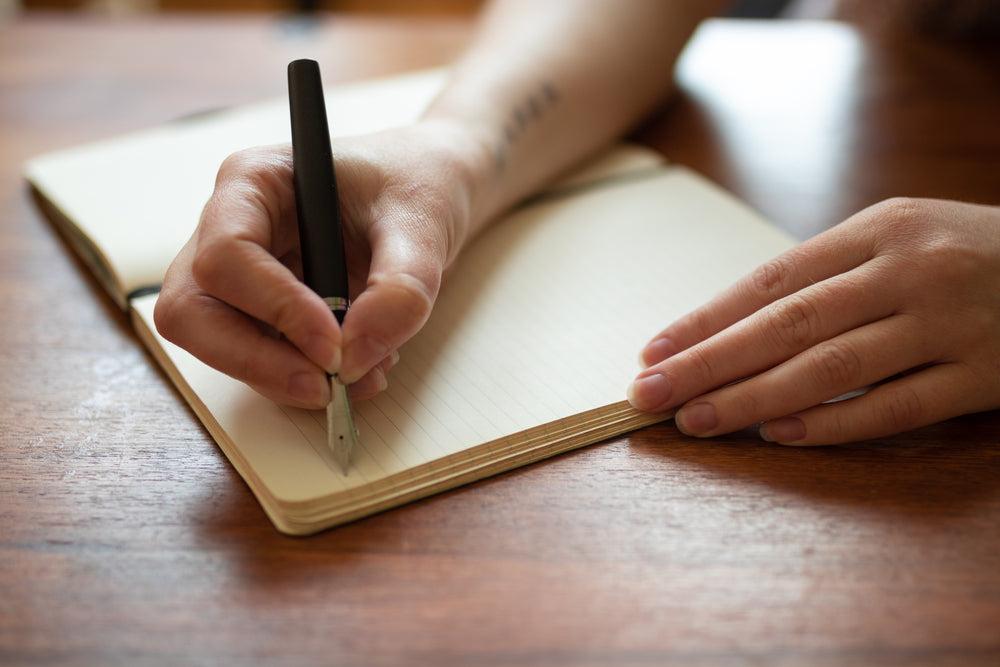
Think on the day that just passed. Have you finished everything you set out to do?
Try to think for yourself. You should ask yourself if you've arrived at your desired destination. If not, what moderate action might you take to move in that direction?
If you are a goal-setter, write out your daily objectives.
AMBIENT JOURNALING
Journaling at night might be compared to putting the day to rest. Putting today to rest so that tomorrow can be a new beginning.
When the day's activities have wound down and the background noise has subsided, it's not uncommon for us to give some thought to the weightier issues we've been avoiding. The things we should have done today but didn't get to because of our forgetfulness.
Simple is best. Keeping a notebook is fine, but you shouldn't spend hours doing it. Timeframe: around 5-10 minutes. Locate a seat and footrest that you particularly enjoy.
Think about including stuff like:
Please tell me what you plan to do tomorrow.
The things you've managed to get done today.
Just what it is you need to drop.
Tell me about something positive that happened today.
EARLY-MORNING NOTETAKING
Some folks sleep quite fine at night and prefer to journal in the morning. When everything is fresh and new. There is peace and tranquility throughout the earth. Since everyone in the home is still sound asleep, it is a good time for reflection before the day's activities begin.
Here are some advantages of keeping a morning journal.
It aids with mental decluttering. If you're the kind to sleep on it, write down your thoughts now so they don't get lost in the hustle and bustle of the day.
First thing in the morning, author Jamie Friedlander spends twenty minutes writing in her journal to get her thoughts organized for the day ahead. She credits morning journaling for helping her manage her anxiety problem for the past fourteen years by revealing the specific triggers that cause her the most distress.
Perhaps you have hit an emotional roadblock. To get past it, write down your thoughts first thing in the morning when you're at your most vulnerable.
An overnight simmer is all it takes to create genius. Having nothing to distract you or impede your progress might be a boon to your creative juices. Take advantage of this time to put pen to paper and compose that masterpiece you've always dreamed of.
Stops self-doubt. Each of us is our own harshest critic. True honesty and introspection can flourish when you stop being so hard on yourself.
METHODICALLY VARYING APPROACHES TO JOURNALISM
The conventional definition of a journal is a written log of one's daily activities. And how they felt about it. Or the things they saw and did while participating in an activity.
It's true that journaling has all those benefits.
People use diaries for a wide variety of reasons, but there are many different ways to keep a journal. You could use these journaling techniques in therapy or to help you achieve your goals.
A RECORD OF THANKS
This is a fantastic technique to journal if you are battling with depression or going through a very difficult moment. To help you deal with difficult feelings, try writing in this style in the evenings before bed. An improved night's sleep may be the result of a routine of thankful thinking just before bedtime.
To express gratitude, jot down the things for which you are thankful.
Make a list of five to 10 items. Fill your thoughts with gratitude.
Seeking out reasons for gratitude creates a positive feedback loop that leaves no room for negative contemplation.
Expressing thankfulness was investigated in a 2015 research of persons with heart failure. After requiring patients to keep a gratitude journal for eight weeks, they found the following results when patients wrote down three items each night:
Had a better night of sleep overall.
Experienced lessfatigue during the day.
managed to keep a good attitude
Felt a greater sense of spiritual fulfillment.
Believed they were capable of handling severe situations.
were in better cardiovascular condition generally.
SPEECH NOTES
If you are a logical thinker looking for a straightforward approach to setting and maintaining your objectives, this is the strategy for you. The intention is for it to be utilized continuously throughout the day.
Bullet journaling is a time-tracking system for keeping track of your daily activities, including ideas, tasks, and plans. Because of his learning challenges, the author Ryder Carroll came up with this style of journaling as a replacement for traditional methods of maintaining focus and getting work done.
His advice is to utilize Rapid Logging, a form of shorthand, rather than writing out complete phrases by hand.

Put together brief descriptions and relevant icons to quickly determine the type of entry:
Dots represent items on your to-do list.
The use of an open circle to represent the event type is recommended. Keep a record of events and how you felt about them here. Take this as an illustration. A high school friend from far back when was among those I ran into today. Sensing my age.
You can keep note of everything important that you don't want to forget in a special section labeled "Notes," which is indicated by the dash. Such as remembrance of a birthday or a forgotten grocery item.
Each entry is kept tabs on in one of four separate sections:
The index, or table of contents, can help you locate the appropriate page for supporting your entry.
Log occurrences that will occur in the future, but not in the current month.
This section of your monthly record will provide you with an overview of the whole month. In the manner of a calendar. After the fact, things can be added.
A daily log is one that is used every day and can be made either the night before or on the day it is first used.
STATEMENTS MADE IN A STREAM-OF-CONSCIOUSNESS JOURNAL
People who are more creative in the morning are likely to benefit from this technique.
Writing in a stream-of-consciousness notebook every morning entails letting your mind wander for at least three pages. Without checking for errors in spelling, grammar, etc.
This 12-week journaling journey was established by award-winning author Julie Cameron in her book "The Artist's Way" to help people release their creative flow; the first three pages should be written first thing in the morning before your brain has a chance to engage.

Ignore writing rules. Correct grammar and spelling merely serve as roadblocks.
Write however you choose; there is no correct way to do it. This isn’t an entry for a best seller.
Be dedicated and keep a journal. Keep it up for the long haul.
Don’t go back and re-read your remarks. Then you won't second-guess and rewrite your work.
Get real. Don’t be hesitant to unleash honest feelings on paper.
She argues that originality isn't necessary for this approach. But about our concerns that play like a daily sound-track. Writing things down helps us pay closer attention to the here and now. Aware of other creative choices.
INTERNATIONAL REPORTING
This form of journaling is supposed to happen throughout the day as a way to shift from one project to the next.
To battle procrastination and boost productivity, Productivity Coach Tony Stubblebine developed this strategy. He likes to work on a project for 25 minutes, then journal for five minutes.
He adds that humans weren’t built for multi-tasking and attempting to go on to a new project while you are still thinking about the last project might cause us to become derailed. And your next project suffers since you aren’t giving it your entire focus.
He defines a project as checking an email to working on a presentation. It's not only switching from one activity to another that might be a distraction. Between tasks, he recommends keeping a journal. No longer than four complete sentences. Keep it brief and to the point.
Use any journal, notepad or app you choose. It's the approach, not the methods, that counts.
Take into account when the project will begin and end. Many people enjoy reviewing their daily activities to gauge their level of success.
Write a few succinct paragraphs about the project and your progress in your journal. Writing down your ideas allows you to release them and move on.
Stubblebine claims that this helps him reflect on his day and pinpoint instances of distraction. He considers the root causes and ways to improve his productivity.
The next time you need to start a project, make a note of the first thing you do. You don’t have to think about the how of starting, just the when.
OBJECTIVES DIARY
Using this form of journaling, you can more easily achieve both immediate and long-term objectives. Like the proverb goes, "you can't devour an elephant in one sitting." Keep a notebook like this at night, when you can think back on your day and write more reflectively.
When you commit your aspirations to paper, they take on a more real form.
When you put your hopes for the future into words, they stop being abstract notions that could come to fruition someday. Physical.
It's time to figure out what you want and how to get it.
Short term goals are minor efforts you take toward reaching broader goals.
Do this by selecting what you want to do and when. First, you need to figure out where you want to end up, and then, working backwards, you need to figure out how to get there.
Dedicate 15 to 20 minutes nightly to writing about your development. It's the equivalent of making a log of your achievements throughout time. Looking back at your journey's beginnings will help you appreciate just how far you've come. Furthermore, if you succeed in reaching this objective, you will be able to set and achieve similar future objectives.
Writing in a journal about your aspirations can help you address your concerns head-on. Learning to recognize when we're having doubts helps us overcome them through forthright evaluations.
Potential roadblocks to your success can be spotted and dealt with with this method. Alternatively, it can illustrate how you overcome adversity in the past, which can help you counsel others who are facing a similar situation.
Journaling can serve as a location to think things through and formulate plans if you're having problems putting a monetary value on your objectives.
Make concrete plans for what to do next to gain traction. A parked car is impossible to steer.
Advice for Journalists
To begin, pick a time of day that appeals to you. -Do you prefer to up early or stay up late?
Construct a routine. – Choose a specific time of day to write in your journal and stick to it. It will become second nature if you make it a regular part of your life.
Use a pen and paper; the act of writing with physical objects has been shown to increase creative output.
Relax - If you like where you're writing, you're more inclined to keep at it.
Avoid distractions –This is arguably the hardest part of journaling. It would be helpful if you could lower the volume or turn off the TV and the music. If you really need some peace and quiet, put on some noise-cancelling headphones.
Use writing prompts -If you need a little additional support, using writing prompts can be a tremendous help to get your creative juices flowing.
Do not be hesitant to write about unpleasant experiences in your notebook. Doing so can help you release pent-up emotions and find some peace.
Writing in a notebook can help, but you still need to do the effort to overcome the trauma.
The time is perfect for introspection. Unhealthy habits can be seen in retrospect.
Is there any alternative if you simply don't have the time to write in a journal? Then make use of a travel notebook or your phone's note taking capabilities as you go about your day.
Writing down your ideas, whether at night or first thing in the morning, is a healthy practice. You should look forward to the trip regardless of the route you take.

LeStallion PU Leather Journals
LeStallion Soft Cover PU Leather Journals inspires and excites you to write more, allow you to further grow and develop, so you may achieve your goals and dreams!
SHOP LESTALLION


